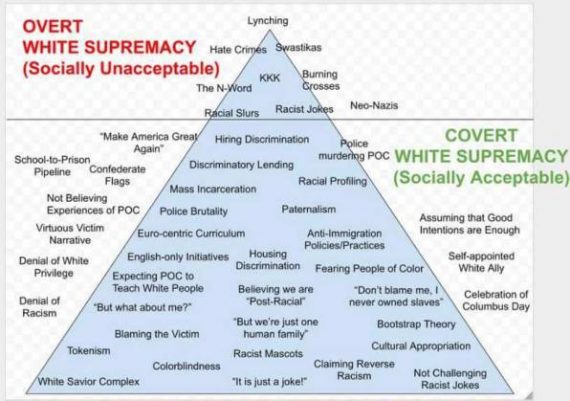John D. Rockefeller built the great Standard Oil empire. He was rich and successful, and not surprisingly, demanded high performance from his company executives.
One day, one of these executives made a two million dollar mistake—a small little error that cost the company two million dollars.
News of this man’s error spread rapidly throughout the executive offices, and they all were scared of Rockefeller’s reaction, and so every executive made himself scarce. They didn’t want to be the one who received the brunt of Rockefeller’s wrath.
But one executive had an appointment already scheduled. He couldn’t cancel it. He couldn’t back out. So when the time came, he squared his shoulders, tightened his belt, took a deep breath, and walked into Rockefeller’s office.
As he approached the oil monarch’s desk, Rockefeller looked up from the piece of paper he was writing on. “I guess you’ve heard about the two million dollar mistake our friend made,” he said abruptly.
“Yes,” said the executive, expecting Rockefeller to explode.
“Well, I’ve been sitting here listing all of our friend’s good qualities on this sheet of paper, and I’ve discovered that in the past, he has made this company many more times the amount of money he lost today in his mistake. His good points far outweigh this one human error. So I think we ought to forgive him, don’t you?”[1]
And that is what happened, the man who made the mistake was forgiven two million dollars.
Now that’s a true story. But let’s go a bit further. Let us imagine that this man who made the mistake went home that day, and discovered while going through his paperwork that a neighbor friend of his had forgotten to pay him one thousand dollars.
So he calls the friend and demands the thousand dollars immediately. Well, the neighbor had just had some medical problems, and lost his job, and didn’t have the money. This enraged the executive, so he decided to sue the man for the money, and that is what he did.
Now let’s say that Rockefeller heard what his executive had done. What do you think Rockefeller would do?
We can be certain that he would call this executive into his office, and say something to him along the lines of, “You wicked man! I forgave you the two million dollar mistake that you made, and yet you would not forgive a man one thousand dollars who wasn’t able to pay it back to you. For that, I will now force you to pay back to me the two million dollars which you owe me.”
Does this story sound familiar to you? It should. It comes straight out of Matthew 18 and Jesus’ instruction regarding forgiveness. And Jesus says there that if we do not forgive others when they sin against us, we will not be forgiven when we sin against God.

In the past couple of weeks, we have been looking at the final section of Ephesians 4, and we have seen four sins which are particularly deadly in the life of the Christian.
We looked at lying, anger, stealing and corrupt speech. All of these hinder our love, our fellowship, and our relationships. But Paul is not done. He has one more issue to deal with in Ephesians 4:31-32. And it is a wonderful item to end this list with.
In Ephesians 4:29-30, Paul wrote against the sin of speaking evil. Ephesians 4:31 is still about the sin of speaking evil, but Paul transitions to a different topic. So Ephesians 4:31 a hinge verse. Though Paul is still warning against the sins of the tongue, he has specific types of evil speaking in mind, namely, malice and bitterness toward others. He is going to show that instead of speaking with bitterness, it is better to forgive others.
As with the previous four sins, this fifth prohibition against sin follows the same pattern. There is first a negative command to not sin. This is found in Ephesians 4:31, where we are told to not speak with bitterness and malice. Then there is a positive command in Ephesians 4:32a, which is to be forgiving instead. Then Paul provides the motivation in Ephesians 4:32b, which is that we should forgive because we have been forgiven by God in Jesus Christ.
Let us begin with the negative command in Ephesians 4:31.
Negative Command: Don’t be Bitter (Ephesians 4:31)
Ephesians 4:31. Let all bitterness, wrath, anger, clamor, and evil speaking be put away from you, with all malice.
Paul lists several aspects of bitterness here. First, he lists bitterness itself. Bitterness is spite that keeps a record of wrongs and develops a general attitude of resentment. Bitterness is revealed in jealous anger, and sarcastic, biting remarks about other people. Do you have lists of wrong things people have done to you or said to you? If so, you are bitter and need to confess this before God.
Then he mentions wrath. The word here is thumon. It’s a stirring of the emotions which ultimately results in a verbal explosion. Wrath is sort of the inward feeling of wanting revenge on someone.
Anger is similar, but tends to be more active and outward. We saw the dangerous results of anger previously when we looked at Ephesians 4:26-27. James also talks about the disastrous results of anger in James 4:1-2, saying that it results in murder.
Then clamor. This is just pure noise. Some people talk, not because they have anything to say, but because they simply like to talk. This is meaningless talk. These people would do well to remember an old proverb that says, “It is better to remain silent and be thought a fool, than to open one’s mouth and remove all doubt.” It has also been said that “There are two kinds of people who don’t say much: Those who are quiet … and those who talk a lot.” That’s clamor.
Clamor also refers to people who resort to raising their voices and shouting and screaming at each other when in a disagreement. Raising your voice always causes more problems in an argument.
Next, evil speaking. The Greek word used here is blasphamia. It is where we get our word blasphemy. Did you know that you could blaspheme another person? We often think that we can only blaspheme God, but we blaspheme others whenever we talk negatively about them, or say evil things about them. This word can also be translated as slander, and we maybe could include all forms of gossip here. Gossip is when you say something about another person—even if it’s true—with the end result that it tears them down in the eyes and minds of other people.
We often hide gossip under a mask by saying things like, “I think we should pray for so and so, because he did this or she said that.” Or, we might call someone and say, “I need to ask your advice about how to handle this certain person who did this or said that.”
Gossip and slander tear down unity and love faster than anything else, and they must be rooted out of our lives. Paul says here that such things are evil speaking, blasphemous.
Finally, in verse 31, Paul mentions malice. The Greek word is kakia, and means hateful feelings, trouble, worry. You will notice that Paul puts malice in a special position, and connects it with the rest of the words by using the preposition with. What he is saying is that malice is the source from which those other kinds of negative talk flow.
Malice is the fountain head from which evil speaking flows. When you speak with bitterness, wrath, anger, clamor or slander about another person, it is because of malice within your heart. Not love.
Now those are the ones Paul lists here, and all of them are serious roadblocks to fellowship, unity and love within the church.
All of these are indications of bitterness, malice, and hatred toward others. All of these types of attitudes toward others fail to edify and encourage others, and therefore tear down the body of Christ rather than build it up. All of these, according to Ephesians 4:31 need to be put away from you. This is an imperative in the Greek. It’s not optional, it’s a command.
So that’s the negative command. The positive command is found in the first part of Ephesians 4:32. Rather than be full of bitterness and malice toward others, we must forgive them instead.

Positive Command: Forgive One Another (Ephesians 4:32a)
Ephesians 4:32a. And be kind to one another, tenderhearted, forgiving one another …
In this verse, Paul uses three phrases to describe forgiveness.
He first says be kind to one another.
The word Paul uses here is chrestos, and because the Greek word for Christ is Christos, Christians from the very beginning saw its appropriateness.[2] To be kind, chrestos, to others is to treat others as Christ would treat them.
This word is also used in 1 Corinthians 13:4 as one of the ways love revels itself. Love is kind.
It is a word in Romans 2:4 concerning the patience, goodness and kindness God has toward us so that we will turn to Him.
Kindness is one of the fruits of the Spirit in Galatians 5:22.
And kindness is what God will show to us for an eternity in heaven. We saw this back in Ephesians 2:7.
Sometimes, we only want to be kind toward those who are kind to us. But again, this same exact word is the word Jesus uses in Luke 6:35 for how God treats the ungrateful and the wicked. He is kind toward them, even though they are in rebellion against Him and are therefore His enemies.
We are not simply to be kind toward those we like, but even kind toward our enemies. Even toward those we don’t like.
The second phrase is tenderhearted. This word is used only here and in 1 Peter 3:8. The word comes from two Greek words, eu, which means good, and splagchnos, which means affection—or bowels, intestines.
Greek people thought that the bowels were the seat of emotions. We talk about emotions like love coming from the heart, but the Greeks said they came from the stomach—or the splagchnos—the bowels. The prophet Jeremiah cries out in Jeremiah 4:19, “My bowels, my bowels!” Today, we would say, “Oh my aching heart!”
So although our version here reads, tenderhearted, they would have understood it to be tenderboweled.
Now personally, I would rather be tenderhearted, than tenderboweled. The thought of being tenderboweled raises the image of spending a lot of time in the bathroom … but that’s what the word really means. However, since we today think about emotions coming from the heart, it is fine for our Bibles to use the word tenderhearted instead.
Regardless, the point is clear. Paul wants his readers to have concern and consideration for others. To care about the needs and desires of others, more than they care for themselves.[3] Those who are tenderhearted look out for the needs of others.

And one of those needs, according to the next phrase in Ephesians 4:32 is forgiveness.
As I have frequently mentioned before, there are two words in the Bible for forgiveness. The first is aphiemi. It is a conditional type of forgiveness, which requires various steps and actions. It might be better translated as “release.”
The second type of forgiveness is charizomai. It comes from the root word charis, which is the word for grace, and so charizomai means to deal graciously with someone, to give freely. This type of forgiveness if freely offered by God to all people for all their sins, past, present, and future. There are no conditions of any kind for this type of forgiveness. This kind of forgiveness could be defined as graciously overlooking or letting go of an offense.
What type of forgiveness is Paul referring to here? It is the second type, charizomai forgiveness.
And this type of forgiveness doesn’t just come from God. As Paul indicates here, we are to extend this free, unconditional forgiveness toward others as well. Why? Because it is important for unity and love in the family of God. We are told in 2 Corinthians 2:10-11 that a lack of forgiveness allows the devil a foothold in our relationships.
If we fail to forgive someone, or refuse to forgive them, it becomes a wedge in the relationship which just serves to drive you further apart. Where there is no forgiveness there is resentment and animosity.
When there is disagreement, the ball is in your court. True forgiveness is not saying, “Well, I’ll forgive them if they say they’re sorry first.” No, charizomai is freely given forgiveness. You take the first step as God did for us. There are no strings attached, no conditions, no requirements. We are to forgive the other person even if they never ask for it, even if they keep sinning against us, and even if they never change their behavior or recognize that what they are doing is wrong.
Paul commands us here to completely and freely forgive one another. Rather than have malice, anger, and bitterness toward others, we are to freely forgive them.
So that’s the command. Now we come to the motivation. You should forgive, because God forgave you.

Motivation: God forgave You (Ephesians 4:32b)
Ephesians 4:32b. … even as God in Christ forgave you.
There are generally two types of people in the world when it comes to being forgiven. First are those who don’t think they need to be forgiven.
This first type, when they read this verse, see the word “you” but immediately think of other people. When they first read this verse, the idea that immediately pops into their mind is, “Wow. God’s grace is so great, it could have covered over the vast multitude of sins of a man like my neighbor.”
Do you see how easy and subtle that is? The text says, even as God in Christ forgave you, and some people read, even as God in Christ forgave everybody else.
No, the point is YOU. ME. I. You see, some of us think that everybody else is a pretty bad person and needs forgiveness, but not me. Yeah, sure, we’ve done a few things bad, but what about that man down the street. Watch out for him! Forgiving him would really crack the bank.
We are all experts at judging others, but blind when it comes to judging ourselves.
We see people live so foolishly, we wonder if they have any brains. We see all the faults of other people. All of their sins. All of their shortcomings. All of their failures. All of their bad attitudes and improper motives.
And God sees all of this as well. But He sees something more. He sees a person we never see.
And that person is ourselves.
Most people think they know themselves pretty well, but the truth is that we are mostly blind to our own faults and shortcomings. Most of us are mostly ignorant of our true nature and character. We are blind to our pride and our arrogance.
In the TV Series, “The Crown,” which is based on the early years of Queen Elizabeth’s reign, there is an episode (Season 1 Episode 9, “Assassins”) where Winston Churchill is having his portrait painted by Graham Sutherland. They have a discussion about whether the portrait will be true to life or hide some of the details of Churchill’s age and weight. After Sutherland begins painting, they have this exchange:
Churchill: Am I to be allowed a peek?
Sutherland: No.
Churchill: Well, why not? I could give you advice. After all, I know this face better than you do. If you’ve made the neck too thick or the arms too long, I can tell you.
Sutherland: I find in general people have very little understanding of who they are. One has to turn a blind eye to so much of oneself in order to get through life.
Sutherland is exactly right. We think we know ourselves, but we are actually the one person we are most ignorant about. The psychologist Carl Jung said that the most important purpose we have in life is to get to know ourselves. And most people know far less about themselves than they think.
Jung pointed out that all of us have a shadow side that we hide and ignore. We don’t want others to see and we refuse to look at it ourselves. Jung taught that we cannot become a complete person, we cannot become who we are meant to be, unless we see our shadow, understand it, and integrate it into our life.
He said that all the negative traits that appear in our life are indications of where our shadow is controlling us without our knowledge. Anger, jealousy, bitterness, wrath, malice, all the things that Pual mentions here in Ephesians 4:31-32, are part of our hidden interior that need to be recognized and dealt with.
The problem, said Jung, is that most of us try to deal with these negative traits by shoving them down deeper. By trying to control them and hide them. But that never works. He said that we need to bring these things to the surface, bring them up to our attention, and then integrate them in our life by redirecting the negative traits toward something positive.
Jealousy can lead us to a greater drive to work hard.
Anger and wrath can be channeled into passion for a cause or to change something wrong with the world.
Fear can lead us to prudence and making wise choices.
We should stop trying to eliminate our flaws, and instead work to transform, redirect, and integrate them into who God made us to be.
Now, regardless of what you think about Carl Jung, he was simply saying what Paul is already teaching here. All of us have negative traits, and we need to recognize those traits and … forgive them! Accept them as part of us! Only in this way can we redirect those negative traits toward something positive.
It’s not good enough to say, in some general, vague sort of way, “Oh, I know I have my faults too.” We all are fatally flawed and have traits that destroy our fellowship with God and are foolishness in the eyes of men. We are most often ignorant about them.
“But,” you say, “If that’s true, how come nobody has ever told me?” Believe me, they have tried. They have tried over and over again, but you just couldn’t take it. Perhaps a great deal of what you call “nagging” or “bad temper” is really their efforts to make you see the truth.
So we must learn to see ourselves as God sees us … but before we can do that, we must first come to recognize that even though God sees our true selves, He continues to forgive us for all our faults. Only when we come to understand that we are fully and completely forgiven will we have the courage to allow God to reveal our true selves to us.
And then once we allow Him to reveal ourselves to ourselves, and we see how much He has forgiven us for, it is then that we find the freedom to forgive others also, as we have been forgiven.
So God sees everything negative we see in other people, and He sees everything negative in us which we do not see. Yet He loves us still. He goes on loving. He goes on forgiving.[4] We will not personally realize this forgiveness until we see that we too are sinners and in need of the forgiveness of God.
Now, there are some people who do recognize how much they need to be forgiven. Not all people are completely blind to their own faults and failures. Some realize how truly sinful and wretched they are. But the danger here is that these people often think that they are so bad, nobody—let alone God—could ever forgive them. When they hear this verse, and it says, even as God in Christ forgave you, they think, “No, you don’t know what I’ve done. God could never forgive me.”

These types of people try to live a good life so they can “work off” their guilt. I don’t know if you’ve seen the movie called “The Mission” but the main character is of this sort. He is involved in the South American slaving business, but after a while realizes the wretchedness of such a trade, and so he becomes a priest and tries to work off his guilt.
Now in one sense, such work does make you feel better, but in all honesty, most of these kinds of people can never shake the guilt. Sometimes the guilt gets so bad, it causes severe depression and mental anguish so that the people get put into psychiatric wards.
Karl Menninger, the famous psychiatrist, says that if he could convince the patients in his psychiatric hospitals that their sins are forgiven, 75 percent of them could walk out the next day.[5]
Some people, although forgiven, cannot forgive themselves or believe that they have been forgiven.
They need to be shown the vast and eternal forgiveness and grace of God as presented in God’s Word. They need to be shown that although they have sinned, the penalty has already been paid for them on the cross of Christ.
God has forgiven you. If you don’t think you are a sinner, or have done anything really bad, ask God to show you how sinful you really are. It will send you to your knees. Or, on the other hand, if you know how sinful you are, but don’t believe God could ever forgive you, ask God to reveal to you the depth and length of His love and mercy toward you. God has forgiven you.
That is what the text says. Even as God in Christ forgave you.
Notice that it doesn’t simply say “God forgave you” but rather, God in Christ forgave you.
Some people think this means that God could not have forgiven us unless Jesus died on the cross. In other words, some people teach that God wanted to forgive us, but He first needed to be paid for the sins of the world, which is what Jesus accomplished through His death on the cross, so that now God can forgive us.
But think about what this view is saying. It is saying that God doesn’t actually forgive at all … instead, He gets paid off.
If you have a car loan or a house mortgage, and you send in your final payment to the bank, are they then going to send you a letter which says, “Congratulations! We have just forgiven your loan!” No. They did not forgive your loan; they got paid. Once the debt is paid off, forgiveness is no longer an option.
So you see, forgiveness and the payment of a debt are mutually exclusive. One can either forgive a debt or be paid for a debt, but you cannot do both. It’s the same with God. God can either forgive us for our sins, or He can be paid off for our debt of sins. But He cannot do both.
Scripture reveals that He did the former. He freely forgives us for our sins. He does not get paid off by the death of Jesus. The blood of Jesus does not buy forgiveness of sins from God, because forgiveness of a debt, by definition, cannot be bought.
So when Paul writes that God forgave us in Christ, what does He mean? He means that in Jesus Christ, we were shown how God freely forgives us for all our sins. How do we see this?
Jesus came as the incarnate son of God. He was God in the flesh. And He did no wrong. He committed no sins. He lived a perfect life, and did not thing that deserved punishment or death. But we took Him, condemned Him, and killed Him anyway. We murdered God.
But on the cross, what did Jesus say? He said, “Father, forgiven them, for they know not what they do.”
In this way, Jesus revealed what God has always been doing. Just as Jesus freely forgave us from the cross, so also, God has always been freely forgiving us from heaven. Since Jesus perfectly reveals God to us, and since Jesus freely forgives us when we are committing the worst sin possible, we know that God freely forgives us of all our sins as well.
God forgives all the sins of all people. That’s how great and vast the forgiveness of God is. (Yes, I am aware of the unpardonable sin in Matthew 12:31-32, and have written a book on the topic. What is most important about that text, however, is that the forgiveness in view in Matthew 12 is the aphesis forgiveness; not charizomai. My book explains why this is significant.)
But if God freely forgives all the sins of all people, does that mean that everybody has eternal life?
No. Why not? Because eternal life is not given simply because someone has been forgiven for all their sins. Eternal life is not received when a person has their sins forgiven. Eternal life is received when a person gain the righteousness of God. There is a difference between having your sins wiped away and gaining the positive righteousness of God. To gain eternal life, we need more than just forgiveness; we need the life of God in us.[6]
But how do we get that?
By faith in Jesus Christ. When we believe in Jesus for eternal life, we are justified. That is, we are “declared righteous” by God. Before, we were only forgiven. Through faith, we are declared righteous and fit for entrance into heaven.
Have you believed in Jesus Christ for eternal life? Nothing you can do can get God to bring you to heaven. You cannot work hard enough. You cannot do enough good.
It is simply faith alone that will give the necessary righteousness for eternal life and entrance into heaven.
But that is not where we should stop, as we are seeing today in Ephesians 4:32. There is more to life than getting to heaven. There are relationships. Relationships with God and with one another.
And Paul is telling us today that a lack of forgiveness in the life of the Christian will damage those relationships.
Look at it this way. We are all sinners. Each one of us struggles in different ways with different things. One person may struggle with anger. Another with stealing. Another with lying. Another with controlling their tongue.
One person may have difficulty with lust – their thought life. That’s not a problem for someone else, but maybe they are tempted by drunkenness.
All of us need to realize that we all struggle with different things, and what I struggle with may not be the least bit tempting for you and vice-versa. Therefore, we need to show a little grace and kindness and forgiveness toward one another.
God did not wait until we had our act cleaned up before He forgave us and decided to love us. He loved us while we were still sinners. While we were yet sinners, Christ died for us. And He continues to forgive us, because none of us are without sin.
This is our example to follow. We have been forgiven much by God. Therefore, when someone sins against us, it is a small matter for us to forgive them.
Now let me say three things in closing about forgiveness.

Forgiveness is Unlimited.
Sometimes, forgiveness comes around to haunt us. It seems like those we forgive just keep taking advantage of us. The person keeps failing, and we keep forgiving. So some people have a forgiveness limit. They say things like, “Well, OK, I’ll forgive you this once, but don’t do that again.”
Two little boys named Charles and James got into a fight. Charles ended up hitting James on the head with a stick, and when their mom came to sort it all out, she told Charles to apologize to James and told James to forgive Charles.
Charles apologized and asked for forgiveness, but James said, “Oh alright. I’ll forgive you tonight, but you’d better watch out in the morning!”[7]
That’s not true forgiveness. But that is the kind of forgiveness some people have. I’ll forgive you this once, but you better watch out.
Some people have a “three strikes and you’re out” mentality. The Pharisees in Jesus day were of this sort. They taught that if a person kept sinning against you, or failing you, you only had to forgive them three times.
But then the apostle Peter came along. And he wanted to be super spiritual, so he took those three times that the Pharisees taught, multiplied it by two, and then added one more for good measure. He went to Christ and said, “How many times should I forgive my neighbor, seven times?”
But Jesus said, “No. Not seven, but seventy times seven.” Now, some people multiply that out, and so “Oh, ok, so I only have to forgive them 490 times” but that’s not the point Jesus was making. He was saying, let your forgiveness be unlimited. Counting how many times you forgive someone is not genuine forgiveness.
But there’s balance here. While your forgiveness can be unlimited, God did give us wisdom and common sense. Which brings us to the second miscellaneous point about forgiveness.

Forgiveness is not Forgetting
Some try to include the idea of forgetting with forgiveness. They says, “Forgive and forget.” I used to do that as well. I used to look at verses like Psalm 103:12 which says he has removed our sin as far from us as the east is from the west and Hebrews 10:17 where it says God remembers our sins no more, and say, “See? True forgiveness forgets.”
But I don’t think my understanding of these verse was correct, and so neither was my application. Psalm 103:12 says nothing more than that he removes our sin from us. It doesn’t say anything about Him forgetting our sin.
And Hebrews 10:17, in context, is saying that in regard to our salvation, our sins are no longer an issue with God. Though we may forgive others and be forgiven, there are still consequences and results of sin.[8]
If someone borrows some money from you, and they squander it, and then are not able to pay you back, that may be an opportunity to forgive them. But forgiveness does not mean that you must give them money the next time they ask for some.
Sin has consequences even though it has been forgiven. Forgiveness does not include enabling the sin to continue. People have character flaws and the purpose of forgiveness is to help them work to improve their character in an atmosphere of love and kindness, not to enable them to continue in their sinful habits.
A Christian man I know owned a business, and he discovered that one of his employees was embezzling thousands of dollars. Did he forgive the man? Yes. But he didn’t forget and he didn’t keep the man as an employee. That would have been foolish.
You see, there are consequences to sin, and forgiveness does not always mean the removal of consequences. Let me give you some other examples.
It is unwise to have a child molester work with children, even though you forgive him. Parents, if your children have a habit of lying to you, you may continue to forgive them, but you will withhold privileges until they show themselves to be trustworthy.
Forgiveness does not always include forgetting. The balance in this is that true forgiveness does forget in the sense that it does not always drag up the past to throw it in someone’s face.
This is key to being a forgiving person.
A man was complaining to his friend that whenever he gets into an argument with his wife, she gets historical.
His fried tried to correct him, “You mean hysterical, don’t you?”
“No,” he said, “I mean historical. She always brings up my past mistakes.”
That is not forgiveness. Forgiveness does not throw the past in people’s faces. It means letting go of the offense, not carrying around a grudge, but also learning from those mistakes so that you do not enable a person to sin further in the future.
So, while there is a sense in which we should forgive and forget, we must not allow our forgetting to cause us to make foolish decisions in the future.

Forgive to be Forgiven
Finally, something should be said about the various texts in Scripture which indicate that we will not be forgiven by God if we don’t forgive others. Matthew 18:35 is one such text. Jesus tells a parable about a man who was forgiven much, and when he did not forgive someone else, the forgiveness that had been offered to him was taken back. Some say that if you don’t forgive, this proves you never had eternal life to begin with.[9]
The key to these sorts of texts is to recognize that they refer to aphesis forgiveness. The conditional forgiveness which gives us release from our addiction and bondage to sin. We can be freely forgiven by God, but still struggle with sin in our lives.
Passages like Matthew 18 (cf. also Matt. 6:12), are not about whether or not we have eternal life and go to heaven when die. Instead, they are about how to have good relationships with people here and now, while on this earth. If you want to have good relationships with other people, you need to own up to your mistakes and ask for forgiveness, while also forgiving others when they ask it of you.
As long as we harbor unforgiveness in our hearts toward others, we will live in bitterness and malice toward others, which hurts and harms us more than it hurts and harms them.
So this brings us full circle back to what Paul is writing here in Ephesians 4. It’s all about love and unity in the church, and if we live with anger, wrath, malice, and bitterness toward others, the church will never be a safe place of harmony and love.
To create the freedom and unity that Jesus wants and desires for us, we must first of all freely forgive others, and this will allow us to break free from the chains of bitterness that hold us back and keep us separated and divided from others.
Don’t let a lack of forgiveness get in the way of all that God wants you to know and experience. Forgive one another, just as God in Christ forgave you.
Do you want to be a forgiving person? If so, remember how much Jesus Christ has forgiven you. And then, stop focusing on the faults of others. Whenever thoughts about the sins of others come into your mind, simply push them away, and think on one’s own faults instead.
For it is there alone that you can make a difference. Of all the sinful people you interact with on a daily basis, there is only one whom you can improve very much.[10] Do you want to be forgiven? Then forgive as God has forgiven you. It is then that we will become like God. As someone once said, “We are most like beasts when we kill. We are most like men when we judge. We are most like God when we forgive.”[11]
In this section of Ephesians, Paul has listed five specific issues and sins that destroy our fellowship with God and with other people. Paul did not list these so that we can point the finger at other people and judge or condemn them for their faults and failures. No, Paul wrote these so that each of us can take a good look into our own hearts to see where we fall short and where we have these problems in our own life.
Where and how do you lie?
What are ways that anger gets the best of you?
How do you steal from others and take what doesn’t belong to you?
Who do you talk negatively about?
What are you bitter about?
Don’t try to hide these failings from yourself. Don’t try to ignore them or push them down. Bring them to the surface. Recognize that you have them. Own up to the. Admit, agree, confess that you have them.
And then forgive yourself. Learning to forgive, just as God in Christ has forgiven you, is the only way to liberate and free yourself from these damaging and destructive behaviors that control you. Acceptance and forgiveness will also help you redirect these behaviors into healthy and beneficial ways.
Elara had always been a people-pleaser, eager to fit into her family’s expectations and societal norms. She pursued a career path chosen more for its security than her passion, and her social life revolved around maintaining harmony, often at the expense of her own desires.
She read her Bible. She prayed. She tried to follow God and do what was right.
However, a nagging feeling of dissatisfaction began to grow within her. She had a longing for something more, a sense of purpose and meaning. She started to feel jealous that even though she worked so hard, other people seemed to get what she wanted and worked for, but they did it with far less work and effort.
She found that often, when she was stressed or tired, she would have outbursts of anger and frustration and her family or coworkers.
Occasionally, she found that she was binge-eating as a way to feel better about life and the hand she had been dealt. But as she gained weight, she started to criticize those who were heavier than her for having less self-control than her, but she also criticized those who were more fit than her because they were not really enjoying the good things in life and wasted all their time in the gym.
She also found herself buying more clothing and jewelry than she needed. And she started to feel dissatisfied with her car, and her house, and the fact that she couldn’t go on very many vacations. It was frustrating that she worked so hard but couldn’t buy everything she wanted.
Sometimes she would recognize that these traits were hurtful. Her greed and jealousy and anger caused life to lose some joy and damaged some of her relationships. So she tried to stifle the emotions and feelings and push them down deeper inside her and not let them out.
But the more she did this, the worse they became.
One day, Elara decided to try something different. She realized she was not becoming a better person, but bitter. The more she tried to control her negative traits, the more they controlled her. So she stopped fighting them. She embraced them. She recognized them for what they were.
Elara began journaling, reflecting on her thoughts and feelings. She started to uncover hidden aspects of herself, including creative passions she had suppressed and a desire to challenge beliefs she had previously accepted without question, including several beliefs about God and the Bible.
She gradually learned to embrace parts of herself she had previously deemed “bad” or “unworthy.” She forgave herself and accepted herself for who she was. Through this challenging but transformative process, she integrated these aspects into herself. And slowly, life began to regain its color, joy, and peacefulness. The negative traits that used to pull her down were transformed and redeemed into traits that spurred her on, inspired her, lifted her up, and encouraged and supported others.
She began making choices that aligned with her values and interests, rather than seeking external validation. She explored new hobbies, pursued a different career path that resonated with her, and nurtured authentic connections with others.
Through this process, Elara didn’t become a different person, but rather, she uncovered her true essence and learned to live authentically. She found a deeper sense of self-acceptance and purpose, living a life that was true to her core essence.
And it all began with self-knowledge and forgiveness. Know yourself and forgive yourself, just as you are fully known and fully forgiven by God. Only then will you enter into the life God has for you.

Notes on Ephesians 4:31-32
[1] Dale Galloway, You Can Win With Love.
[2] Stott, 190.
[3] Remember, hard-heartedness is the way we once were – in the old self, being past feeling (4:19).
[4] C.S. Lewis, 142-154.
[5] Michael Green, Illustrations for Biblical Preaching, #524.
[6] Zane Hodges, Harmony With God, (Dallas: Redencion Viva, 2001), 67-69.
[7] 1001 Humorous Illustrations, #385.
[8] Bob Wilkin, “An Enormous Debt Forgiven: Parts 1 and 2” Grace In Focus Newsletter, Jan/Feb, May/June 2002 newsletters. See also, Robertson McQuilkin, Two Sides of Forgiveness, in Nelson’s book of Illustrations, p. 317. See also Snodgrass, 264-265.
[9] cf. Robert H. Mounce, Matthew, NIBC (Peabody, MA: Hendrickson, 1991), 178.
[10] C.S. Lewis, 154.
[11] William Arthur Ward, Thoughts of a Christian Optimist.










 Also note the verb walk. It is used twice in Ephesians 4:17, and it is a key word for the rest of chapter 4, all of chapter 5, and the first half of chapter 6. Ephesians can be summarized with three verbs: Sit, Walk, Stand. Chapters 1–3 are about being seated with Christ. Chapters 4–5 and half of chapter 6 is about walking with Christ. And then Ephesians 6:10-20 is about standing our ground with Christ.
Also note the verb walk. It is used twice in Ephesians 4:17, and it is a key word for the rest of chapter 4, all of chapter 5, and the first half of chapter 6. Ephesians can be summarized with three verbs: Sit, Walk, Stand. Chapters 1–3 are about being seated with Christ. Chapters 4–5 and half of chapter 6 is about walking with Christ. And then Ephesians 6:10-20 is about standing our ground with Christ.

 First of all, before we look to the wider context, an alert biblical thinker will recognize that Paul is engaging in a classic scapegoating technique. He is portraying a group of outsiders as monsters, so that they can be safely sidelined, ignored, or in some more extreme cases, arrested or even killed. All hatred, war, and violence comes from scapegoating, and one of the primary purposes for the life, death, and resurrection of Jesus was to unveil the scapegoating sin that all humans practice.
First of all, before we look to the wider context, an alert biblical thinker will recognize that Paul is engaging in a classic scapegoating technique. He is portraying a group of outsiders as monsters, so that they can be safely sidelined, ignored, or in some more extreme cases, arrested or even killed. All hatred, war, and violence comes from scapegoating, and one of the primary purposes for the life, death, and resurrection of Jesus was to unveil the scapegoating sin that all humans practice. Essentially, Paul is holding up a mirror to the souls of his readers by getting them to condemn some other group of people, and then he says, “Look! You’re looking into mirror. They are the mirror of you!”
Essentially, Paul is holding up a mirror to the souls of his readers by getting them to condemn some other group of people, and then he says, “Look! You’re looking into mirror. They are the mirror of you!”
 In Kindergarten we are taught that whenever you point the finger at someone else, there are three fingers pointing back at you. That is how to read this text, and Paul deftly does some finger pointing at others to reveal to the Ephesian Christians that they should stop worrying about what others do, and instead take a look at their own life. Who cares what “they” do? Life isn’t about fixing them or controlling them. Life is about you becoming who God made you to be.
In Kindergarten we are taught that whenever you point the finger at someone else, there are three fingers pointing back at you. That is how to read this text, and Paul deftly does some finger pointing at others to reveal to the Ephesian Christians that they should stop worrying about what others do, and instead take a look at their own life. Who cares what “they” do? Life isn’t about fixing them or controlling them. Life is about you becoming who God made you to be.



 There is also an issue there at the end of the verse about the “gift of God” and what it refers to. What is the gift of God that Paul is referring to? Is it the grace? The faith? the salvation? I have taught about this frequently in the past, so I’m not going to dive deep into the question now. (See these articles:
There is also an issue there at the end of the verse about the “gift of God” and what it refers to. What is the gift of God that Paul is referring to? Is it the grace? The faith? the salvation? I have taught about this frequently in the past, so I’m not going to dive deep into the question now. (See these articles: 





 First, I am not fond of the term “sinful nature,” and it is not the best translation of the terms here that Paul wrote in the Greek. The Greek word is sarx, which is best translated as “flesh.” I argue in
First, I am not fond of the term “sinful nature,” and it is not the best translation of the terms here that Paul wrote in the Greek. The Greek word is sarx, which is best translated as “flesh.” I argue in 
 Wrath is a fire that destroys everything it touches, and the fire of wrath is sparked by human desire that leads to human violence.
Wrath is a fire that destroys everything it touches, and the fire of wrath is sparked by human desire that leads to human violence.